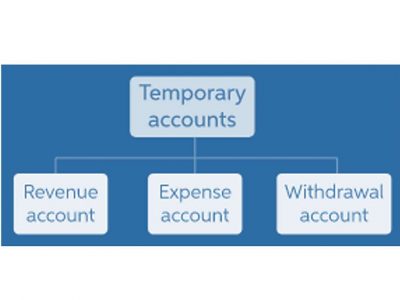
If you don’t pass all sections within this timeframe, your oldest passing score will expire, and you’ll have to retake that section. Developed by the American Institute of Certified Public Accountants (AICPA) and administered by NASBA and Prometric, the exam is designed to test your knowledge across key areas of accounting. Both the CIA certification and CPA license give you the credentialing necessary to advance your auditing career. That said, when considering CIA vs CPA, there are significant career differences that you should understand.
Essential Child Care Skills: Guide for Future Professionals

CPAs can advance in their careers by taking on leadership roles, such as becoming a partner in a firm or a CFO in a company. They can also explore different career paths, retained earnings balance sheet such as academia or consulting. Environmental accounting is a specialized area of accounting that focuses on the environmental impact of business activities. CPAs who specialize in environmental accounting help businesses to identify and manage their environmental risks, as well as to develop strategies for reducing their environmental footprint. They may also work with government agencies to ensure compliance with environmental regulations.
CPA Specialty Fields
Overall, a CPA is a highly skilled and knowledgeable professional who plays a critical role in the world of accounting. They provide a wide range of services to businesses and individuals, and are seen as trusted advisors in the financial world. While public accountants serve multiple clients at any given time, private accountants perform accounting services within an organization’s internal finance department. Learn more about public accounting, including how to become a certified public accountant and what careers exist in the field. Learn more about public accounting, job opportunities in the field, and how to become a certified public accountant. Many businesses, especially large corporations, also look for CPAs to fill accounting positions, especially higher level and management positions.
- A CPA is required to complete continuing education requirements and uphold a standard of professional ethics.
- More importantly, as a working professional, you can finish your degree faster at Franklin by transferring qualified prior college credits and/or work experience.
- While all CPAs are accountants, not all accountants are CPAs, making the CPA title a mark of higher expertise and professional standing.
- It typically takes 4-7 years, including education and experience requirements, plus time to pass the CPA exam.
- One of the key principles of the AICPA Code of Professional Conduct is integrity.
- Reflect on the kind of company you want to work for and the role you want to fill that best aligns with your accounting interests.
Financial Reporting and Compliance

It typically takes 4-6 years to meet the educational and experience requirements and pass the CPA Exam. After completing your degree, you will need to gain the required experience before applying for licensure. Public accounting firms can range in size from a sole practitioner to hundreds or thousands of CPAs, offering services locally, regionally, nationally, or internationally. Some firms are full-service in that they offer a full range of accounting services, including taxes, bookkeeping, audits, risk, payroll, and more. Areas of specialization in the consulting arena include forensic accounting, financial and estate planning, and litigation services.
Can I become a CPA without a degree in accounting?
For example, publicly traded companies must report their financial results quarterly and annually. For those considering a career in accounting, becoming a CPA is one of the most rewarding paths to professional success. The knowledge, skills, and ethical standards that come with the CPA designation provide a solid foundation for long-term career growth and financial expertise. This Partnership Accounting column explores why public accounting is not only a satisfying career choice for newcomers but also a dynamic and fulfilling sector for experienced professionals. Becoming a CPA involves meeting education and experience requirements, passing the CPA exam, and obtaining licensure.

Loss of licensure

More opportunities and more responsibility often translate into a higher income, and typically, CPAs earn significantly more than non-CPAs. The 2023 average CPA salary was $96,7523, though the average range is between $60,874 to $150,6124. Accountants without a CPA license tend to earn less with an average range between $47,138 and $82,167. Typically, an accountant is a person who has a degree in accounting from a higher education institution. However, this is not an official requirement because the general term “accountant” is largely unregulated in the U.S.
- If you want to learn more about the CPA Exam, download our free 2024 CPA Exam Guide.
- He currently researches and teaches economic sociology and the social studies of finance at the Hebrew University in Jerusalem.
- CPAs are responsible for a wide range of accounting services, including auditing, tax preparation, financial planning, and consulting.
- CPAs also provide consulting services to clients, including management services, financial planning, and valuation services.
- Earning the CPA credential is a big time commitment, and the exam is challenging.
- CPAs in Government play a vital role across federal, state, and local jurisdictions, ensuring financial stability and accountability.
Higher Earning Potential
Overall, CPAs who specialize in these areas of practice bring a wealth of knowledge and expertise to the table. They help businesses to navigate complex financial and regulatory landscapes, and provide valuable insights that can help them to achieve their goals. Continuing professional education (CPE) components form the backbone of the renewal process — most states require CPAs to keep their skills sharp and current through ongoing training.
CPAs also work for government agencies, performing financial, performance, and compliance audits of government agencies and of companies who do business with the government. Another role for CPAs is with law enforcement agencies, helping to investigate financial crimes or other crimes that leave a financial trail. CPAs appear throughout the business and financial world, working in public accounting, business and industry, government, not-for-profit, and education.
For those who thrive on challenges and innovation, it offers an unmatched opportunity to stay ahead of trends, develop new skills, and contribute to cutting–edge solutions. The total cost can range what does a certified public accountant do from $2,000 to $5,000, including exam fees, study materials, and educational expenses. With your CPA license in hand, you’re now fully equipped to advance in your accounting career. Passing the CPA exam is a major milestone, but you’re not officially a CPA yet. You must pass all four sections within an 18-month rolling window, meaning once you pass your first section, the clock starts ticking.
